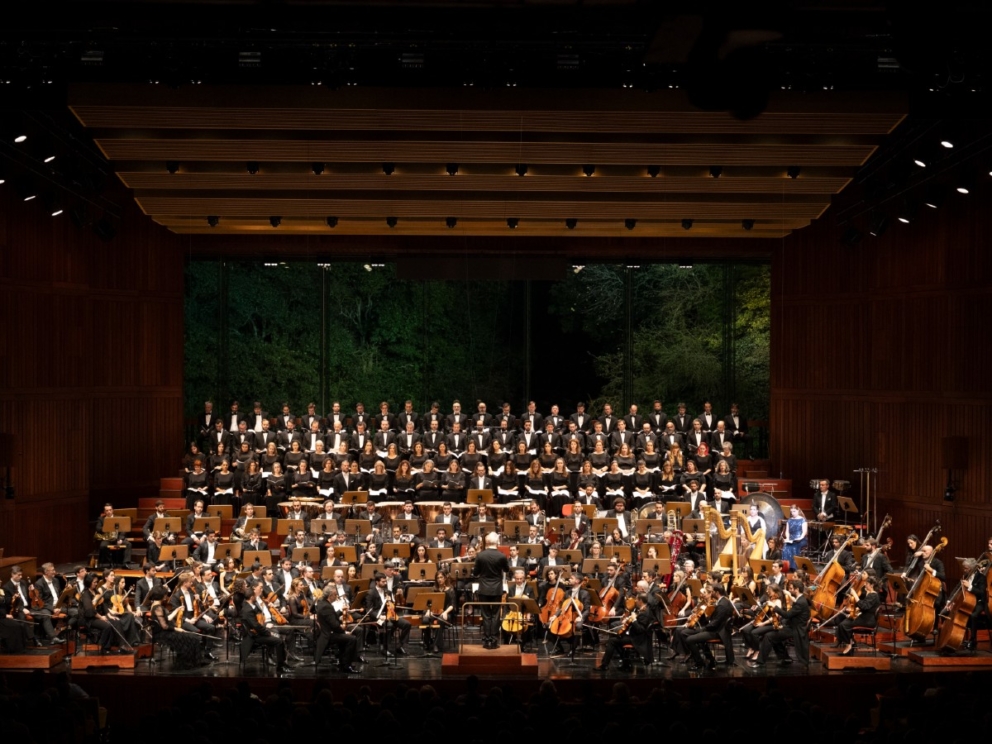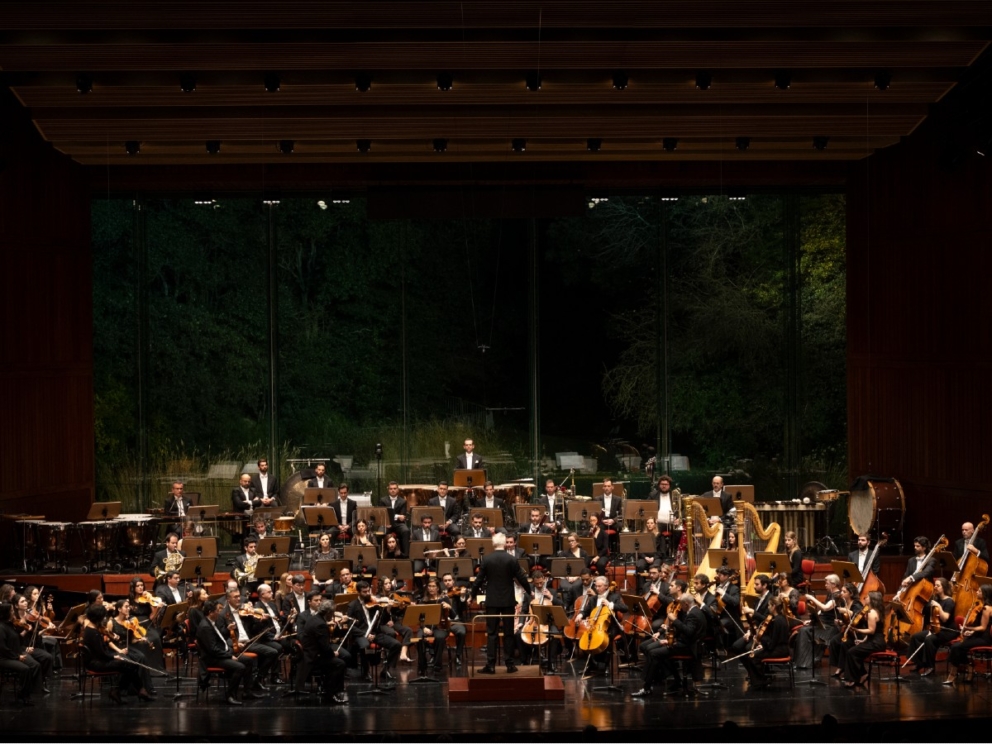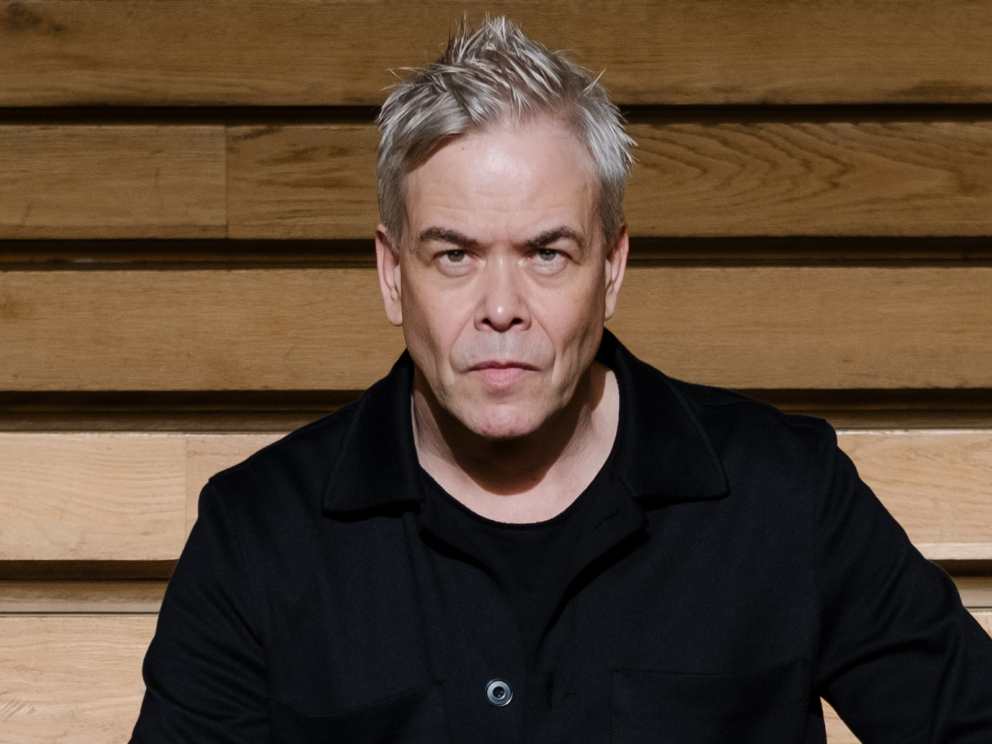Beethoven’s 9th Symphony
Gulbenkian Orchestra and Choir
Event Slider
Date
- / Cancelled / Sold out
Location
Grand Auditorium Calouste Gulbenkian FoundationPricing
- 23,00 € – 47,00 €
25% – Under 30
10% – Over 65
Cartão Gulbenkian:
50% – Under 30
15% – Over 65
- Conductor
- Ambur Braid Soprano
- Jess Dandy Mezzo-soprano
- Michael Weinius Tenor
- Matthew Rose Bass
-

Gulbenkian Choir
Coro Gulbenkian was founded in 1964 by the Calouste Gulbenkian Foundation as a full symphonic body of around 100 singers. The choir joins the Orquestra Gulbenkian and other orchestras to perform Classical, Romantic and Contemporary choral-symphonic repertoire, but can also perform a cappella. It has performed – and often premiered – many 20th century works by Portuguese and international composers.
Coro Gulbenkian has been invited to collaborate with major international orchestras, under the direction of conductors such as Claudio Abbado, Colin Davis, John Nelson, Emmanuel Krivine, Esa-Pekka Salonen, Frans Brüggen, Franz Welser-Möst, Gerd Albrecht, Michael Gielen, Michael Tilson Thomas, Rafael Frübeck de Burgos, René Jacobs and Leonard Slatkin, among others.
Besides its regular season of concerts in Lisbon and frequent national tours, Coro Gulbenkian has repeatedly toured Argentina, Belgium, Brazil, Canada, Denmark, France, Germany, Hungary, India, Iraq, Israel, Italy, Japan, Macao, Malta, Monaco, Netherlands, Spain, the United Kingdom, the United States of America and Uruguay.
Coro Gulbenkian has recorded extensively for Philips, Deutsche Grammophon, Erato, Cascavelle, Musifrance, as well as FNAC-Music, performing a wide range of repertoire, from Early-Renaissance polyphony to Xenakis. Several of these albums received international awards.
Michel Corboz was the Principal Conductor between 1969 and 2019. Jorge Matta and Inês Tavares Lopes are currently the Associate and Assistant conductors, respectively.
-

Gulbenkian Orchestra
In 1962, the Calouste Gulbenkian Foundation decided to establish a permanent orchestral ensemble. Originally with only twelve musicians (strings and continuo) it was named “Orquestra de Câmara Gulbenkian”. This collective was successively enlarged and today the “Orquestra Gulbenkian” (the name it has adopted since 1971) has a permanent body of sixty instrumentalists, a number that can be expanded depending on the repertoire.
This structure allows the Gulbenkian Orchestra to interpret works from the Baroque and Classical periods, a significant part of 19th century orchestral literature and much of the music of the 20th century, including works belonging to the current repertoire of the traditional symphonic orchestras. In each season, the orchestra performs on a regular series of concerts at the Gulbenkian Grand Auditorium in Lisbon, where it has had the opportunity of working together with some of leading names of the world of music (conductors and soloists). It has also performed on numerous locations all over Portugal, in an effort to decentralize music and culture.
The orchestra has been constantly expanding its activities in the international level, performing in Europe, Asia Africa, and the Americas. In the recording field, Orquestra Gulbenkian is associated to labels as Philips, Deutsche Grammophon, Hyperion, Teldec, Erato, Adès, Nimbus, Lyrinx, Naïve and Pentatone, among others, and this activity was recognized with several international prizes.
-

Hannu Lintu
Music Director
“Dynamic and sharp on the podium” (Bachtrack) and with a “scrupulous ear for instrumental color and blend” (Washington Post), Hannu Lintu maintains his reputation as one of the world’s finest conductors. This season, Lintu continues his tenures as Music Director of Orquestra Gulbenkian and Chief Conductor of Finnish National Opera and Ballet, proving himself a master of both symphonic and operatic repertoire. The appointments followed a stream of successful concerts with Orquestra Gulbenkian and breathtaking productions with Finnish National Opera and Ballet. The 2023/24 season also saw his announcement as Artistic Partner of Lahti Symphony Orchestra from Autumn 2025.
Highlights of the 2024/25 season include his debut at Bregenzer Festspiele conducting Oedipe and returns to Chicago Symphony, BBC Symphony, Finnish Radio Symphony, London Philharmonic, St Louis Symphony and Oregon Symphony.
Symphonic highlights of recent years have seen Lintu conduct the New York Philharmonic (including an immediate re-invitation from the orchestra to perform at Bravo! Vail Festival), Berliner Philharmoniker, Cleveland Orchestra, Bavarian Radio Symphony Orchestra, Orchestre National de Radio France, Boston Symphony Orchestra, Swedish Radio Symphony Orchestra, Deutsches Symphonie-Orchester Berlin, Radio Filharmonisch Orkest, Atlanta Symphony Orchestra, Konzerthaus Berlin, Orchestre de Chambre de Lausanne and Orchestre Symphonique de Montréal, alongside the likes of Gil Shaham, Kirill Gerstein, Daniil Trifonov and Sergei Babayan.
As an expert in both operatic as well as symphonic repertoire, Lintu’s recent opera highlights have included Wagner’s Der fliegende Holländer at Opera de Paris and Debussy’s Pelléas et Mélisande at Bayerische Staatsoper as a guest conductor, as well as multiple productions at Finnish National Opera and Ballet, including a recent multi-season Ring Cycle, Poulenc’s Dialogues des Carmélites, Mozart’s Don Giovanni, a choregraphed reimagining of Verdi’s Messa da Requiem, Puccini’s Turandot, Richard Strauss’ Salome, and Britten’s Billy Budd.
Lintu studied cello and piano at the Sibelius Academy, where he also later studied conducting with Jorma Panula. He participated in masterclasses with Myung-Whun Chung at L’Accademia Musicale Chigiana in Siena, Italy, and took first prize at the Nordic Conducting Competition in Bergen in 1994.
Sofia Gubaidulina
Ludwig van Beethoven
Dedicated to Beethoven, The Wrath of God is one of Russian composer Sofia Gubaidulina’s greatest creations. A piece of astonishing intensity that seems to make the senses shudder. Gubaidulina said in an interview that, as humanity is pushed to be levelled and homogenised, the task of an artist must be to counter this idea. The piece, premiered in 2020 on the occasion of the 250th anniversary of Beethoven’s birth, is conducted at Gulbenkian Music by Hannu Lintu and is paired with the German composer’s emblematic Ninth Symphony.
Sponsor Gulbenkian Music
The Calouste Gulbenkian Foundation reserves the right to collect and keep records of images, sounds and voice for the diffusion and preservation of the memory of its cultural and artistic activity. For further information, please contact us through the Information Request form.
